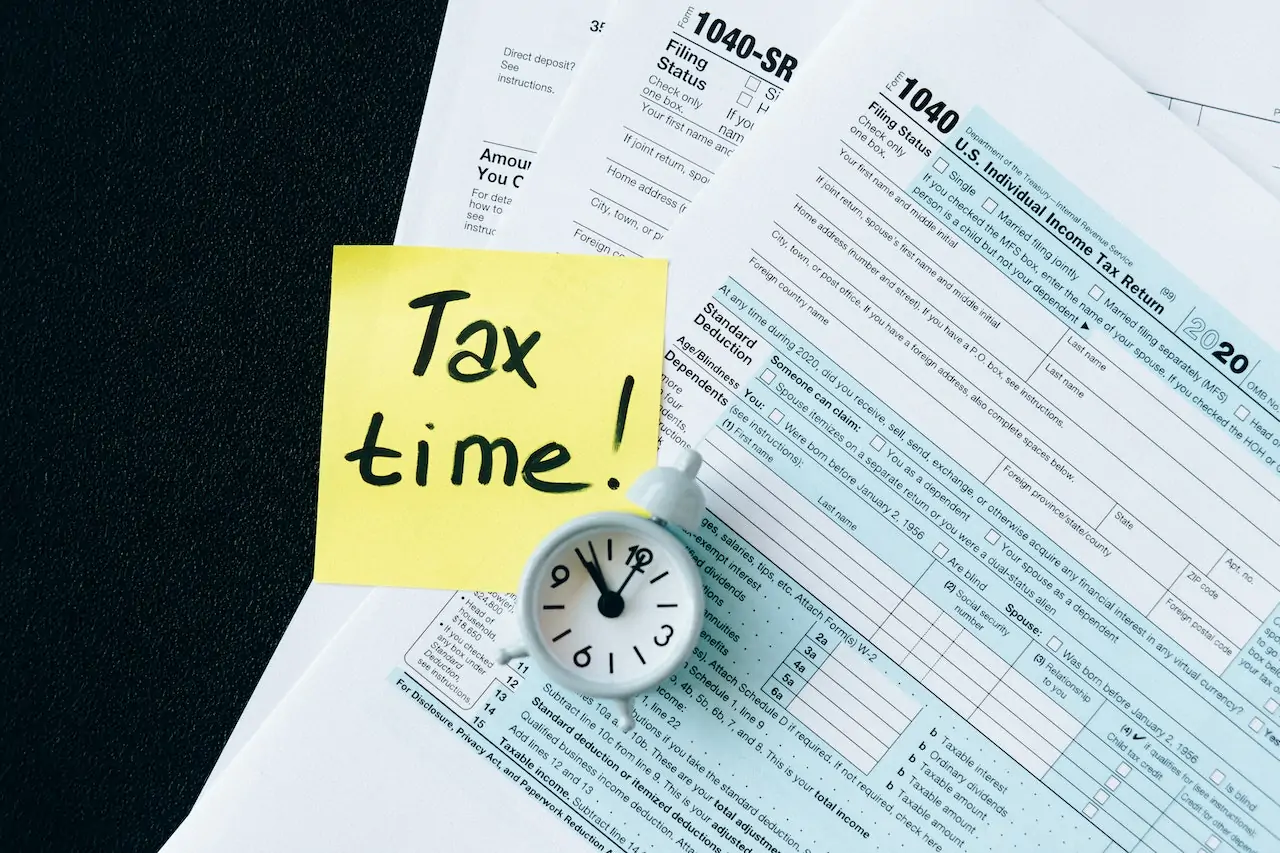
VAT deadlines and penalties: A guide
8 Jun 2023For businesses that pay their VAT monthly or quarterly, the deadline for both submitting a return and paying the VAT owing is one calendar month plus seven days after the VAT period has ended. For example, for a VAT quarter ending 30 September 2023, the return and VAT owing will be due for submission and payment by 7 November 2023.
It’s important to note that the VAT payment must have cleared through the HMRC’s account by this date. Therefore, you must allow time for payment to reach HMRC by the due date.

You can use your VAT online account to find out when your VAT deadline for returns and cleared payments.
Annual returns
Some companies report via the VAT Annual Accounting Scheme, and for those that do, the deadline will be different. This scheme is not best suited to businesses that need to reclaim VAT regularly. In the Annual Accounting Scheme, only one repayment will be issued per year.
New VAT penalty system
As of 1 January 2023, the UK government has put a new VAT default surcharge regime in place. This new penalty system dictates separate penalties for late VAT return submissions and late VAT payments. The new system also calculates interest differently regarding late taxpayers, as well as late HMRC payments.
Penalty points system
The new system issues penalty points for late VAT returns. This penalty points system is expected to come into force across all tax payments in time. There is an intention of creating a less punitive system when it comes to the occasional missed deadline.
HMRC will issue 1 point to a taxpayer each time they fail to meet a filing deadline. Similar to the way the Department of Transport issues penalty points that stay on a person’s licence for a set period of time. VAT penalty points will also expire after a specified period of time (unless an individual goes beyond the penalty thresholds). It’s important to note that penalty points can be issued for both late nil and VAT repayment returns.
When you reach a set number of points, HMRC will fine you a penalty fee of £200. From there, all subsequent deadlines that you miss will trigger another penalty fee.
VAT Penalty point thresholds
Below are the points thresholds for each submission period. A penalty fee is charged once the total points accrued reach the relevant threshold.
|
Submission period |
Points threshold |
|
Monthly |
5 points |
|
Quarterly |
4 points |
|
Annual |
2 points |
Exceptions to the rule
There are some instances in which a late VAT return will not incur a penalty, such as:
-
The first VAT return is submitted after registering
-
The final VAT return is submitted after the cancellation of VAT registration
-
The lodgement of one-off returns for periods other than a year, quarter, or month
Points expiration periods
The good news regarding the new points system is that, after a set period of time, the points accrued do expire. The expiration of points is dependent on completing a period of time in which good compliance is consistently achieved with no errors. Good compliance includes submitting all returns on time and making payments in time for them to clear by their due date.
The period of good compliance you must complete depends upon the regularity of your returns:
|
Submission Cycle |
Good compliance period |
|
Monthly |
6 Months |
|
Quarterly |
12 Months |
|
Annually |
24 Months |
Late VAT payment penalties
Under the new system, both fixed penalties and daily penalties will apply. In other words, the later your payment is received by HMRC, the higher the penalties will be.
The penalty brackets are as follows:
Up to 15 days late
Payments made up to 15 days after the deadline will not attract a penalty, regardless of the number of times this occurs. Penalty exclusions also apply in the case that a taxpayer has an agreement with the HMRC to make a payment according to a specific set and agreed timeframe; such agreements are called a Time to Pay arrangement.
16 - 30 days late
Payments made between 16 and 30 days after the deadline will attract a penalty of 2% of the amount outstanding as of day 15. That said, HMRC will not be applying this rule until 2024 to allow businesses time to adapt to the new system. This temporary reprieve only relates to payments made up to 30 days late.
31 days late or more
Payments that are 31 days or more late will attract a 2% penalty of the amount that was outstanding on day 15, plus an additional penalty of 2%, which is calculated on the amount outstanding as of day 31. This means that if no payments have been made toward the outstanding amount, a total of 4% will be charged as a penalty.
Additionally, beginning on day 31, a daily penalty will be charged on the amount outstanding, and this is calculated at a rate of 4% per annum. Interest will continue to be charged on the overdue tax amount, calculated on the Bank of England’s current base rate plus an additional 2.5%. This interest will continue to accrue regardless of any time-to-pay arrangement.
How can I avoid a VAT penalty?
The best way to avoid a penalty is to ensure that your VAT returns and payments are lodged on time. Every time. Ultimately, that’s the only guarantee of avoiding penalties.
That said, it’s important to understand that it’s still better to file your return on time, even if you are going to struggle to pay your VAT bill. You don’t want to rack up points and eventually be stung with the £200 in addition to other penalties. If paying your VAT bill is a concern, the best option is to file your return on time and then approach HMRC to secure a Time to Pay arrangement.
HMRC have indicated that they will allow businesses a ‘period of familiarisation’ to transition to the new system. As such, businesses will not be charged a late VAT payment. So long as the return is filed within 30 days from the deadline date. This leniency is expected to remain until 31 December 2023.
.jpg)
Appealing VAT penalties and points
Under the new system, businesses will still have the right to appeal HMRC’s decision to issue them with a late filing point or a penalty for late payment. Appeals can be made within 30 days of receiving a notification of the penalty or point being issued by HMRC.
Businesses can challenge a penalty or late filing point by requesting HMRC to conduct an internal review of the decision or by lodging an appeal to the Tax Tribunal. When appealing a penalty or point, businesses will have to prove that there were circumstances resulting in the deadline being missed that constitute a reasonable excuse.
One of the intentions behind the design of the new system is to reduce the number of penalty appeals that progress to the Tribunal.
What about my existing default surcharges?
As of 1 January 2023, HMRC issued a ‘clean slate’ to all businesses regarding penalties related to previous late filing and payments. So, if you have any existing default surcharges, they will have been wiped as of the beginning of 2023. That said, any returns yet to be filed with a starting date prior to 1 January 2023 will still be treated as per the previous Default Surcharge regime. Additionally, HMRC will issue and enforce any necessary penalties in line with its guidelines.
Will interest be charged differently?
The new system incorporates Default Interest, both in the event of a taxpayer being late payment and when HMRC is delayed in paying a taxpayer what they are due. For periods that begin on 1 January 2023 or later, the new system overrides and withdraws the old Repayment Supplement system.
Default interest
Default (or late payment) interest is charged from the first day that the payment becomes overdue until it’s paid in full. Interest is calculated at the current Bank of England’s base rate plus an additional 2.5%. This interest is applied to
-
Late VAT return filing
-
Overdue amounts under HMRC assessments
-
Late Payment on Account (POA) payments
-
Voluntary disclosures regarding VAT owing to HMRC
-
Overdue VAT penalties
Repayment interest
Regarding VAT periods that started on or after 1 January 2023, a taxpayer may be entitled to receive repayment interest on any VAT owed to them by the HMRC. However, interest-only applies should HMRC be late in paying them the amount owed. This now includes any repayment claims resulting from voluntary disclosures.
Repayment interest is calculated at the current Bank of England’s base rate, less 1%, with a minimum interest rate guarantee of 0.5%. It’s important to note, however, that HMRC will not pay businesses any repayment interest for periods in which there are any outstanding VAT returns or payments due.
As with any other tax discrepancies, HMRC may offset any overpaid VAT against other taxes owing to them. In that situation, the repayment interest would end on the date the offset is actioned.
Get in touch with our friendly accountants if you need any VAT advice on 0207 043 4000 or info@accountsandlegal.co.uk.























